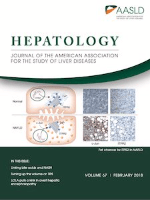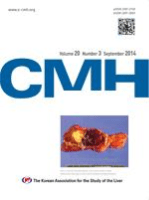
Hepatology International
Scope & Guideline
Fostering collaboration for impactful liver research.
Introduction
Aims and Scopes
- Metabolic Dysfunction-Associated Liver Diseases:
The journal focuses extensively on metabolic dysfunction-related liver diseases, particularly metabolic-associated fatty liver disease (MAFLD), exploring its pathophysiology, clinical implications, and management strategies. - Hepatocellular Carcinoma (HCC) Research:
Research on HCC is a key area, encompassing studies on its epidemiology, molecular mechanisms, risk factors, treatment modalities, and outcomes, reflecting the urgent need to address this prevalent liver cancer. - Liver Transplantation and Complications:
The journal covers various aspects of liver transplantation, including donor selection, post-transplant outcomes, complications, and innovative techniques, aiming to improve patient management and survival. - Autoimmune Liver Diseases:
Significant attention is given to autoimmune liver diseases, emphasizing their diagnosis, treatment, and long-term management, particularly in populations susceptible to these conditions. - Innovative Diagnostic and Therapeutic Approaches:
The journal promotes research on novel diagnostic techniques and therapeutic interventions, including the use of artificial intelligence in imaging, molecular markers, and emerging pharmacological treatments. - Gut-Liver Axis Research:
Research exploring the relationship between gut microbiota and liver health is increasingly highlighted, focusing on how gastrointestinal factors influence liver diseases and their progression.
Trending and Emerging
- MAFLD and Cardiovascular Risk:
There is a growing body of work linking metabolic dysfunction-associated fatty liver disease (MAFLD) with cardiovascular risks, emphasizing the need for integrated approaches to manage both liver and cardiovascular health. - Artificial Intelligence in Hepatology:
The integration of artificial intelligence and machine learning techniques in diagnostic imaging and prognostic modeling is a notable trend, promising to enhance the precision of liver disease assessments and treatment planning. - Personalized Medicine Approaches:
Research focusing on personalized medicine in hepatology is on the rise, with studies exploring individualized treatment plans based on genetic, epigenetic, and metabolic profiles of patients. - Immunotherapy for Hepatocellular Carcinoma:
Emerging studies on immunotherapeutic strategies for treating hepatocellular carcinoma indicate a significant trend, reflecting the shift towards harnessing the immune system in cancer treatment. - Research on Gut Microbiome Influence:
The exploration of gut microbiota's role in liver disease progression and treatment response is increasingly prominent, highlighting its potential as a therapeutic target and diagnostic tool.
Declining or Waning
- Traditional Viral Hepatitis Management:
While viral hepatitis remains a critical area, the focus on conventional management strategies has waned in favor of more innovative approaches, such as personalized medicine and combination therapies, indicating a shift towards addressing complex cases rather than standard treatment protocols. - Alcohol-Related Liver Disease Studies:
Research specifically targeting alcohol-related liver diseases appears to be decreasing, as the emphasis has shifted towards metabolic liver diseases like MAFLD, reflecting changing demographics and health concerns. - Chronic Hepatitis C Treatment:
With the advent of highly effective direct-acting antivirals, studies focusing on long-term management and outcomes of chronic hepatitis C have diminished, as the clinical landscape has moved towards elimination and prevention strategies. - Surgical Interventions for Liver Disease:
There seems to be a decline in studies focused on surgical interventions, such as liver resections and traditional transplant techniques, with a growing interest in less invasive approaches and innovative therapies. - Liver Disease in Pediatric Populations:
While pediatric liver diseases remain important, the volume of research specifically targeting this demographic has decreased, possibly due to a shift in focus towards adult populations and the broader implications of liver health.
Similar Journals

Canadian Journal of Gastroenterology and Hepatology
Championing Excellence in Gastroenterology and HepatologyCanadian Journal of Gastroenterology and Hepatology, published by HINDAWI LTD, serves as a vital resource in the fields of gastroenterology and hepatology. Since its inception in 1987, this open-access journal has made significant contributions to advancing research and clinical practice through its comprehensive coverage of topics ranging from liver diseases to gastrointestinal disorders. With an impressive Q2 ranking in Gastroenterology and a Q3 ranking in Hepatology as of 2023, the journal has established itself as an influential platform for researchers and healthcare professionals seeking to disseminate and acquire knowledge. The journal is based in Egypt, with its operational headquarters located in London, England. Notably, it holds a respectable standing in Scopus rankings, placed at Rank #64 in Gastroenterology and Rank #34 in Hepatology, reflecting its impact and relevance in the medical community. With a commitment to quality and accessibility, the Canadian Journal of Gastroenterology and Hepatology continues to foster innovation and collaboration among its readers.

LIVER INTERNATIONAL
Elevating the standards of liver research globally.LIVER INTERNATIONAL, with its ISSN 1478-3223 and E-ISSN 1478-3231, is a prestigious peer-reviewed journal published by Wiley in the United Kingdom. Established in 2003, it focuses on advancing the field of hepatology, covering a broad spectrum of topics including liver disease, hepatocellular carcinoma, and transplantation. Ranking #10 out of 82 in the Scopus category for Medicine - Hepatology and boasting a remarkable 88th percentile, LIVER INTERNATIONAL has secured its reputation as a leading journal, recognized as Q1 in the 2023 category quartiles. The journal emphasizes accessibility, offering an open access option to ensure that critical research findings reach a wider audience. By facilitating the dissemination of high-quality research, LIVER INTERNATIONAL plays a vital role in shaping contemporary hepatological discourse and bridging academic inquiry with clinical practice, making it an essential resource for researchers, healthcare professionals, and students alike.

HEPATOLOGY
Empowering researchers and clinicians in the field of hepatology.HEPATOLOGY is a premier scholarly journal dedicated to advancing the field of liver research and clinical practice. Published by Lippincott Williams & Wilkins, this journal boasts an impressive impact factor and holds a prestigious position as one of the top-ranked publications in both Hepatology (Q1) and Medicine (miscellaneous, Q1) categories as of 2023. HEPATOLOGY, with its commitment to disseminating high-quality research since its inception in 1981, serves as an essential platform for researchers, clinicians, and students focusing on liver diseases, including hepatitis, cirrhosis, and liver cancer. The journal's editorial board comprises leading experts who guide the publication towards its objective of fostering innovation and collaboration in this critical area of health. Although it does not offer an open access model, HEPATOLOGY ensures that its comprehensive analyses, reviews, and groundbreaking studies are accessible to the global medical community. Join the discourse in hepatology and be a part of a transformative journey through this indispensable resource.

Journal of Clinical and Translational Hepatology
Transforming liver health through groundbreaking research.Journal of Clinical and Translational Hepatology is an esteemed publication dedicated to advancing the field of hepatology through innovative research and clinical insights. Published by XIA & HE PUBLISHING INC, this journal connects researchers and healthcare professionals in the exploration of liver diseases and their management. With an impact factor that reflects its significant contribution to the discipline, the Journal holds a commendable Q2 classification in Hepatology as of 2023, and it ranks highly in both Gastroenterology and Hepatology categories on Scopus, positioning it within the top 80th percentile of its field. Although the journal is not open access, it provides its audience with invaluable information, encouraging collaboration that aims to translate clinical findings into transformative patient care. With a publication history spanning from 2013 to 2024, the Journal of Clinical and Translational Hepatology has established itself as a vital resource for researchers, clinicians, and students alike, making it a prominent voice in the hepatological community.

Liver Cancer
Empowering insights into liver neoplasms.Liver Cancer is a premier, peer-reviewed journal dedicated to the comprehensive study and advancement of knowledge surrounding liver neoplasms. Published by KARGER and headquartered in Switzerland, this journal has been an open-access platform since 2012, providing researchers with invaluable insights into the rapidly evolving field of hepatology and oncology. With an impressive impact factor that places it in the Q1 category for both Hepatology and Oncology in 2023, Liver Cancer stands out as a high-impact conduit for groundbreaking research, ranking #19 out of 404 in Medicine _ Oncology and #6 out of 82 in Medicine _ Hepatology according to Scopus. Researchers, practitioners, and students are encouraged to engage with the journal's content, which encompasses clinical studies, basic research, and reviews that contribute significantly to understanding liver cancer dynamics, diagnosis, and treatment strategies. This journal not only facilitates the dissemination of knowledge but also fosters collaboration in a well-established and impactful global scientific community.

Hepatobiliary & Pancreatic Diseases International
Navigating the complexities of liver and pancreatic diseases together.Hepatobiliary & Pancreatic Diseases International, an esteemed journal published by Elsevier, stands as a vital resource within the field of gastroenterology and hepatology. Established in 2002, this journal has developed a significant reputation, currently ranked in the second quartile (Q2) in both categories as of 2023, showcasing its commitment to high-quality research and clinical studies. Based in Singapore, Hepatobiliary & Pancreatic Diseases International serves as an essential platform for researchers, clinicians, and healthcare professionals to share innovative findings, therapeutic approaches, and advancements in the understanding of hepatobiliary and pancreatic diseases. Although the journal does not currently offer Open Access, its rigorous peer-review process ensures that published articles maintain the highest scientific standards, fostering knowledge dissemination among the global research community. With a convergence period extending to 2024, this journal continues to play a pivotal role in enhancing the understanding and treatment of complex gastrointestinal conditions, making it a must-read for anyone engaged in this dynamic field.

Hepatology Communications
Advancing liver health through innovative research.Hepatology Communications, published by Lippincott Williams & Wilkins, serves as a pioneering platform in the field of hepatology, dedicated to advancing the understanding of liver diseases and treatments. Since its inception in 2017, this open access journal has rapidly gained recognition, achieving an impressive Q1 ranking in Hepatology as of 2023, and appealing to a diverse audience of researchers, clinicians, and students alike. With its focus on high-quality research and clinical studies, the journal aims to facilitate impactful discussions and disseminate vital findings that address the challenges faced in liver health. Operating out of the United States, and accessible globally, Hepatology Communications is committed to fostering a collaborative research environment and enhancing the visibility of scholarly work in hepatology, ultimately driving forward innovations in patient care and treatment strategies.

Korean Journal of Gastroenterology
Connecting Disciplines for Gastroenterological ExcellenceKorean Journal of Gastroenterology (ISSN: 1598-9992, E-ISSN: 2233-6869), published by the Korean Society of Gastroenterology, has been a premier outlet for research and advancements in the field of gastroenterology since its inception in 1968. This open-access journal, based in South Korea, fosters a global dialogue on gastrointestinal health, embracing contributions from a diverse array of disciplines within medicine. It is currently ranked in the Q4 quartile for miscellaneous medicine and holds a Scopus rank of #323 out of 636 in general medicine, reflecting its commitment to publishing impactful research despite its relatively recent establishment in high-impact metrics. With a continuous publication timeline extending through to 2024, the journal aims to enhance understanding of gastrointestinal disorders and promote innovative treatments, making it an essential resource for researchers, clinicians, and students alike who seek to stay abreast of the latest developments and clinical applications in gastroenterology.

Clinical and Molecular Hepatology
Transforming the landscape of hepatology with cutting-edge studies.Clinical and Molecular Hepatology, published by the Korean Association for the Study of Liver, stands at the forefront of hepatology, offering a significant platform for research and innovation in liver diseases. Established in 1995 as an open access journal, it aims to disseminate high-quality research that spans the fields of hepatology, molecular biology, and medicine. With an impressive impact factor ranking it in the Q1 category for 2023 in both Hepatology and Molecular Biology, the journal facilitates a rich exchange of knowledge among professionals, researchers, and students globally. With its dedicated coverage from 2012 to 2024 and exceptional Scopus rankings placing it within the top 10% of journals in its field, Clinical and Molecular Hepatology is an indispensable resource for advancing the understanding and treatment of liver conditions. Located in Seoul, South Korea, the journal emphasizes rigorous peer review and is committed to enhancing clinical practice and molecular research, making it an ideal venue for groundbreaking studies in liver health.

Clinical Gastroenterology and Hepatology
Transforming Knowledge into Clinical PracticeClinical Gastroenterology and Hepatology, published by Elsevier Science Inc, stands as a leading journal in the fields of gastroenterology and hepatology. With an ISSN of 1542-3565 and an E-ISSN of 1542-7714, this esteemed publication has earned its place in the top quartile (Q1) of both gastroenterology and hepatology categories as of 2023, ranking 6th out of 167 and 7th out of 82 respectively. The journal aims to disseminate innovative research, clinical studies, and case reports that advance the understanding and treatment of gastrointestinal and liver diseases. Targeted towards researchers, healthcare professionals, and students, it provides crucial insights into emerging therapies and medical advancements. Clinical Gastroenterology and Hepatology is not only a pivotal resource for contemporary gastroenterological research but also fosters collaboration and knowledge-sharing within the medical community. With a converging publication history from 2003 to the present, the journal continues to build on its solid foundation of scientific excellence and relevance.